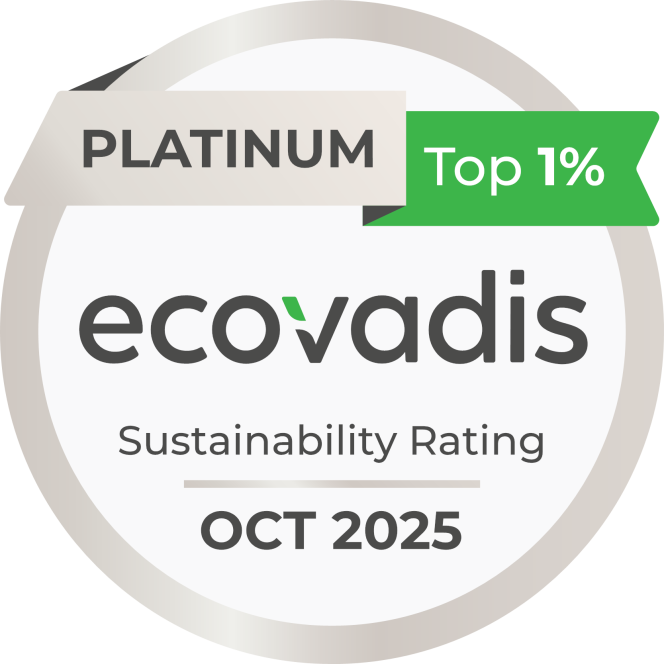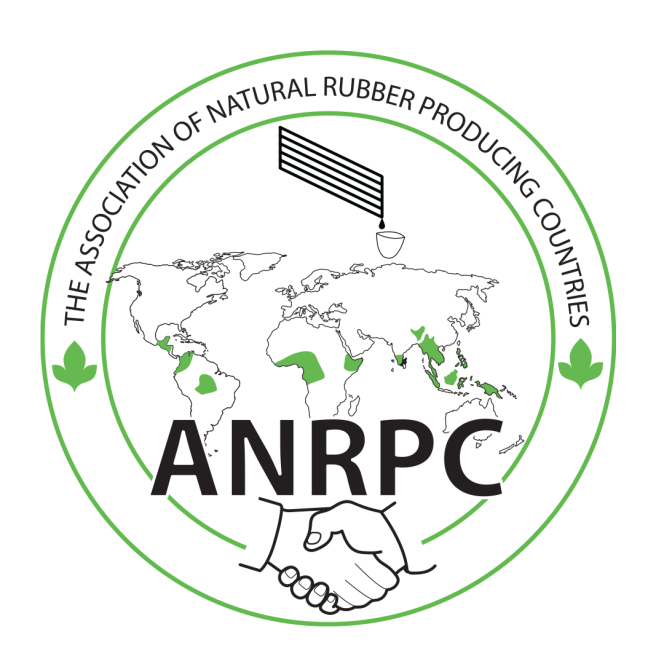Right Foot Forward
- By Rommel Albuquerque
- February 23, 2021

Pooja Apte Badamikar is the Founder of BlinkGreen, an eco-friendly startup that upcycles tyre scrap to make fashion worthy footwear. Like many in India, Pooja completed her engineering and took up a job in the IT sector. She worked there for about four years while completing her post-graduation in renewable energy from The Energy and Research Institute (TERI).

“Environment and sustainability has always been my passion since school days. TERI is a well-known university for the related courses. I wanted to start my career in the environmental sector, which is why I opted for a PG in Renewable Energy subject,” Pooja says.
 While hunting for a job in this very niche sector, she came across the field of upcycling waste material, specifically tyres. “Upcycling is the best way to reduce landfills. With very minimum investment we can start the business. The most important part here is that we can replace the virgin material normally used and hence reduce the use of natural resources like oils and water.”
While hunting for a job in this very niche sector, she came across the field of upcycling waste material, specifically tyres. “Upcycling is the best way to reduce landfills. With very minimum investment we can start the business. The most important part here is that we can replace the virgin material normally used and hence reduce the use of natural resources like oils and water.”
With the drive to reduce landfills and waste in our country Pooja looked across the globe for ways to utilise scrap tyres for footwear. She says, “During my post-graduation I started reading about upcycling and recycling of different materials. Very few of us know that tyre waste is a very serious issue and a miniscule amount is recycled out of it. So, I started brainstorming on the topic and the idea that footwear can be made from scrap tyres worked. It also helps to reduce landfills. Then I started working on the idea and with the help of local cobblers, we were successful in making 2 prototypes of footwear where the soles were made of upcycled tyres. The first prototype was made up of airplane tyres and the second one was made of scrap truck tyres.”
Putting her ideas and education together, Pooja was able to develop two prototypes and was ready to show the country how we can help the environment and make it sustainable. “I enrolled myself in the startup India competition – ‘Start Up yatra.’ To my surprise, I won an award for ‘Upcoming Women Entrepreneur’ in Nov 2018. That’s when the journey started for me by turning the idea into business.”
 So, how does she upcycle tyres?
So, how does she upcycle tyres?
“We have a few local sources in Pune who supply old tyres and we get them machine cut and use them to cover the bottom part with the footwear.” BlinkGreen also employs several women from self-help groups to work on stitching the fabric for the footwear. Put all this together and you get great footwear that reduces tyre waste and helps save the environment.
We asked Pooja how she was able to start a business like this, “I won Rs 50,000 in the ‘Upcoming Woman Entrepreneur’ category, organised by the Maharashtra State Innovation Society for ‘Start Up yatra’. In July 2019, I approached the Bank of India for a Mudra loan for small businesses and this is all the funding options that have helped me sustain my startup.”
Great start. But, can this work?
“Until now we have upcycled around 500 kgs of waste tyres. Which means we have 500 kg less tyre waste in our landfills until now. Conventionally footwear soles are made of plastic or virgin rubber. Which means we have helped to reduce the use of almost equal amounts of plastic by replacing it with the scrap tyre. So, we have helped to reduce the use of a large number of resources (like oils and water) which otherwise might have been consumed for manufacturing plastic.”
Can upcycling waste as a career or a business?
“The Circular Economy has great opportunities to start your business. It will definitely help society, business and environment. But the most important part in the upcycling business is, it should not jeopardize the quality of the final product.”
Birla Carbon Secures Platinum Medal In EcoVadis Sustainability Rating
- By TT News
- December 27, 2025

Birla Carbon, a leading global manufacturer and supplier of high-quality carbon materials, has been awarded the prestigious Platinum sustainability rating by EcoVadis, ranking it within the top one percent of all assessed companies globally. This honour recognises the firm’s enterprise-wide leadership in integrating sustainability across its operations, innovation and value chain.
The evaluation specifically commended its strong performance across four key areas: Environment, Labor & Human Rights, Ethics and Sustainable Procurement. This achievement is further validated by extensive third-party certifications, with over 75 percent of operations certified to international standards including ISO 14001, ISO 50001, ISO 45001, SA8000 and ISO 27001, underscoring the consistency and strength of its sustainability management systems.
John Loudermilk, President and CEO, Birla Carbon, said, “This Platinum rating reflects the steady progress we are making in embedding sustainability at the core of our business. Our growth strategy is geared towards delivering sustainability through innovation, operational excellence and responsible practices across our global footprint. We continually invest in sustainability and circularity-driven processes, keeping our operations sustainably efficient while creating long-term value for our customers, partners, communities and employees. Our sustainability strategy, Share the Future, serves as a roadmap to a sustainable future and guides our actions towards our aspiration of reaching net zero carbon emissions over the next 25 years. Being recognised among the top one percent of companies globally is a testament to the commitment of our teams worldwide.”
Yokohama Rubber And RAOT Hold 10th Joint Seminar For Thai Natural Rubber Farmers
- By TT News
- December 26, 2025
The Yokohama Rubber Co., Ltd. recently conducted an educational seminar for local natural rubber farmers in partnership with the Surat Thani branch of the Rubber Authority of Thailand (RAOT). This marked the 10th such event since the programme's inception in 2020, involving 50 local farm households. Attendees received complimentary fertiliser, developed with RAOT's expertise, as part of the ongoing support.
The seminar curriculum covered essential agricultural topics, including soil and plant nutrition, correct fertiliser application and methods to prevent contamination in natural rubber. To commemorate the 10th seminar, the programme was expanded to include guest speakers from local government, police and healthcare. These guests addressed broader community and safety issues, such as human rights for foreign and minority workers, road safety and occupational health. A particular focus was placed on practical well-being, with the local hospital director offering guidance on preventing injuries during tree tapping and managing encounters with poisonous insects.
Post-event feedback from participants was overwhelmingly positive. Many expressed that they gained new, systematic knowledge about cultivation practices, despite years of experience. Several noted that hearing directly from a rubber manufacturer reinforced the critical importance of purity in their product. Others found the health and safety advice immediately useful. The engaging delivery of the seminar was also highlighted, with one farmer mentioning a desire to recommend the valuable and enjoyable experience to peers.
This initiative is a direct implementation of a memorandum of understanding (MoU) signed between Yokohama Rubber and RAOT in January 2020. The MoU focuses on economic support for farmers and improving supply chain traceability, aligning with the company's Procurement Policy for Sustainable Natural Rubber. Hosted in the region where Yokohama’s Thai natural rubber processing subsidiary, Y.T. Rubber Co., Ltd. (YTRC), operates, the seminar exemplifies the policy's guideline to support small-scale farmers within the supply chain.
As a founding member of the Global Platform for Sustainable Natural Rubber (GPSNR), Yokohama Rubber is committed to advancing these principles. The company views such efforts as integral to creating shared value under its sustainability slogan, ‘Caring for the Future’, and contributes to broader United Nations Sustainable Development Goals through the promotion of sustainable raw material procurement.
Rubber Research Institute Of India Develops Latex-Based Paint
- By TT News
- December 26, 2025
In a significant event for India’s rubber sector, Minister for Ports, Co-operation & Devaswoms V N Vasavan inaugurated a ceremony for the transfer of innovative latex-based paint technology. This eco-friendly paint, a product derived from natural rubber, was developed by the Rubber Products Incubation Centre of the Rubber Research Institute of India. The technology was formally handed over to Kerala Paints Industries Private Ltd., with the Minister highlighting the event's historic nature for launching a sustainable product and stressing the importance of increasing domestic natural rubber consumption to improve grower returns.
Rubber Board Executive Director M Vasanthagesan outlined the centre's role in converting research into market-ready goods, reaffirming the Board's dedication to creating innovative, value-added rubber products. The gathering also heard remarks from several key figures, including Mahatma Gandhi University's K V Dayal, RRII Director Dr Debabrata Ray, RRII Senior Scientist Dr Shera Mathew and Kerala Paints' Managing Director Midhun P Pullumettel.
- Association of Natural Rubber Producing Countries
- ANRPC
- Natural Rubber
- Monthly NR Statistical Report
ANRPC Publishes Monthly NR Statistical Report For November 2025
- By TT News
- December 22, 2025

The Association of Natural Rubber Producing Countries (ANRPC) has released its Monthly NR Statistical Report for November 2025, providing an overview of key developments in the global natural rubber sector.
While a modest rise in global production of 1.3 percent is anticipated for the year, this follows a revised, lower output forecast for Indonesia. Concurrently, worldwide demand is projected to grow by a more subdued 0.8 percent, bolstered by an upward adjustment in Indonesia's own consumption figures.

Recent price pressures have emerged due to this combination of uncertain supply, influenced by unpredictable weather patterns and generally muted demand. However, there are sporadic positive indicators, including noticeable recoveries within the tyre sector across some regional markets.







Comments (0)
ADD COMMENT